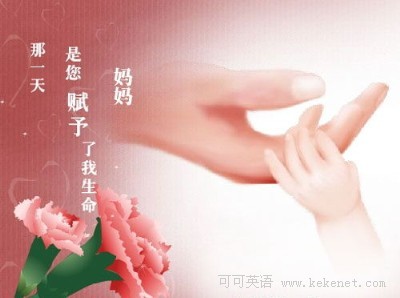
When Mary Van Beke was growing up in the 1920s, she lived in Newark, N.J., and was the oldest of four children. Her parents were immigrants from Europe. And as Mary tells her son, Charles, her parents managed a modest life for the family, until an accident changed everything.
在20世纪20年代,玛丽·范·贝克成长生活在新泽西州的纽瓦克市。她是四个孩子中的老大。她父母是欧洲移民。正如玛丽跟她儿子查尔斯说的一样,她的父母一直朴素地生活养家,直到有一天,一切都改变了。
Mary's father, William Luis, was just 29 when he died; Mary was 5."He worked for an electrical company, and he was standing in water — and someone dropped a wire and electrocuted him," she tells Charles.
玛丽的父亲,威廉·路易斯29岁就去世了,当时玛丽只有5岁。她跟查尔斯说,“他在一家电气公司工作,当时,他站在水中,掉下一截电线,把他触死了。”
When William died, Mary's mother was pregnant with her youngest sister."And so my mother had to go out to work, wash clothes and clean house to try and feed four children," she says.As for clothes, the children wore whatever Mary's mother, Eva Hornyak, managed to bring home from the households where she worked.
威廉死时,玛丽的妈妈身怀六甲,腹中是玛丽的小妹妹。她说,“从此,我妈不得不出去工作,替别人洗衣服、打扫房子,以养活我们四个孩子。”玛丽的母亲,伊娃·霍亚克从户主那里讨来什么衣服,她的孩子就只能穿什么衣服。
"I don't ever remember going to the store to get a pair of shoes, 'cause Mama couldn't afford it," says Mary, now 94.Still, her mother, who had grown up in Czechoslovakia, taught Mary and her siblings to take pride in themselves."I'm not saying that we looked dowdy," Mary says. "She said, 'You don't have to be dirty to be poor.' I always remember that."
现年94岁的玛丽说,“在我的记忆中,我们从未进商店买过一双鞋,因为妈妈买不起。”然而,在捷克斯洛伐克长大的妈妈还是教导玛丽和她的姊妹们要以自己为荣。“我是说,我们看上去并不邋遢,”玛丽说道,“妈妈说过,‘虽然穷困,也须整洁。’我对此念念不忘。”












